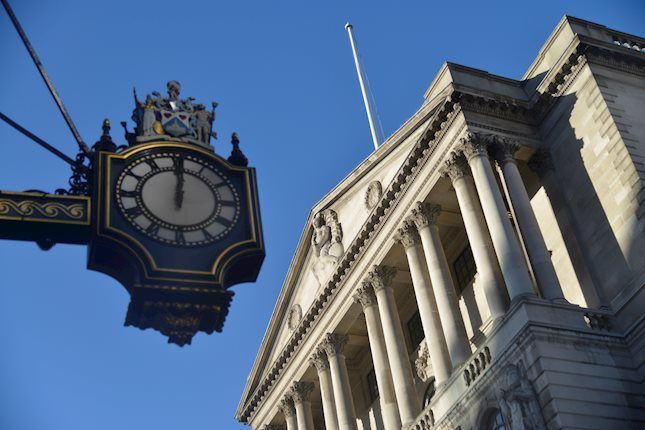- Family offices are agile investors with large financial capabilities, diverse portfolios, and long-term investment horizons.
- They can pour capital towards early-stage companies even during times of market uncertainty given their longer-term investment horizons.
- Since the beginning of Covid in 2020, they have emerged as the fastest growing investors in the venture space.
What is a family office?
A family office is a company investing funds directly on behalf of the fund’s owners. Family offices are led by financial teams that invest on behalf of a single family or a small group of families also known as Multi Family Office (MFO). Family offices are subject to light regulatory oversight because these entities manage personal wealth, not external investors’ wealth.
A recent Credit Suisse study that categorizes a family office as group with a wealth threshold of $100 M, estimates that there are between 6,500 to 10,500 family offices globally. A 2019 study by Campden Research (a specialized family investment group) put the number at 7,300 (up 40% from 2017), managing a total of almost six trillion dollars.
Most family offices are in their infancy as demonstrated by UBS and Campdem Wealth global survey which showed that around 70% of family offices were founded in 2000 or later, with 35% starting since 2010. This change is happening as many wealthy families have discovered that they can manage their investment at a much lower cost than the traditional investment vehicles charging management fees of 2 and 20 percent. The data provided by UBS through their survey (of a sample of about 300 family offices) shows that family offices incurred an average 1.157 % fee per year in total for managing their money. This is close to half that is charged by traditional investment vehicles.
While family offices are smaller than hedge funds, private equity, and sovereign wealth funds, they have the flexibility to invest in smaller, early-stage investment deals and to make it happen fast. They also have enough capital to commit to larger investment rounds ranging from $10-50M which are needed to scale tech businesses.
Before the Covid pandemic, family offices did not make many direct investments into tech startups. Instead, they invested their money on venture capital, private equity funds, or followed a more conventional investment approach across equities, real estate, commodities, fixed income, and other asset classes. This model has changed as family offices have realized they were missing out on potential lucrative opportunities across digital finance, health tech, green growth and AI, just to name a few. To elaborate further, according to PWC and Campden Research, family offices deal volume growth has outpaced VC in 2021.
A changing investment landscapes
Family offices are playing catch up as they seek to take full advantage of the frothy opportunities offered across tech sectors. Despite the drastic 2022 decrease of family offices investments, they accounted for almost one-third of all capital invested in startups globally (PWC). Startup and growth companies on the other hand, are seeking greater exposure to family offices as these tend to have long-term investment horizons, faster decision-making processes, and hands on approaches.
Overall, according to PWC, family office-backed deals represented a total of 10.1% of all investments in startups worldwide in 2022. In terms of capital allocation, 32.5 percent of all capital invested in startups in the same year came from family offices. In terms of regional breakdown, family offices deal selections were heavily concentrated in North and Latin America. These following were the sectors prioritized: a) Software-as-a-Service; b) FinTech; c) Artificial Intelligence & Machine Learning; d) Technology, Media, and Telecoms; and e) health. Other areas that saw significant growth included, clean tech, farming, and broader sustainable investing. Next gens’ influence is behind the growth of sustainable investing as younger investors are focusing more on ESG.
What is ahead of us?
While most US family offices remain bearish on the short-term market outlook, looking forward to 2023 and 2024, according to different sources, family offices are expected to increase their investments on artificial intelligence, healthcare tech, and green tech. Furthermore, according to Campden Wealth report 2023, roughly one in four family offices in North America has invested or is expected to invest in the metaverse, one in 10 in NFTs, and over a quarter in Web 3.0. All of this suggest that the broader tech sector is poised to accelerate as the world economy seeks to shake off inflationary and interest rates pressures.
All information posted is for educational and information use only, and it should never replace professional advice. Should you decide to act upon any information in this article, you do so at your own risk.
Recommended Content
Editors’ Picks

EUR/USD extends recovery beyond 1.0400 amid Wall Street's turnaround
EUR/USD extends its recovery beyond 1.0400, helped by the better performance of Wall Street and softer-than-anticipated United States PCE inflation. Profit-taking ahead of the winter holidays also takes its toll.

GBP/USD nears 1.2600 on renewed USD weakness
GBP/USD extends its rebound from multi-month lows and approaches 1.2600. The US Dollar stays on the back foot after softer-than-expected PCE inflation data, helping the pair edge higher. Nevertheless, GBP/USD remains on track to end the week in negative territory.

Gold rises above $2,620 as US yields edge lower
Gold extends its daily rebound and trades above $2,620 on Friday. The benchmark 10-year US Treasury bond yield declines toward 4.5% following the PCE inflation data for November, helping XAU/USD stretch higher in the American session.

Bitcoin crashes to $96,000, altcoins bleed: Top trades for sidelined buyers
Bitcoin (BTC) slipped under the $100,000 milestone and touched the $96,000 level briefly on Friday, a sharp decline that has also hit hard prices of other altcoins and particularly meme coins.

Bank of England stays on hold, but a dovish front is building
Bank of England rates were maintained at 4.75% today, in line with expectations. However, the 6-3 vote split sent a moderately dovish signal to markets, prompting some dovish repricing and a weaker pound. We remain more dovish than market pricing for 2025.

Best Forex Brokers with Low Spreads
VERIFIED Low spreads are crucial for reducing trading costs. Explore top Forex brokers offering competitive spreads and high leverage. Compare options for EUR/USD, GBP/USD, USD/JPY, and Gold.